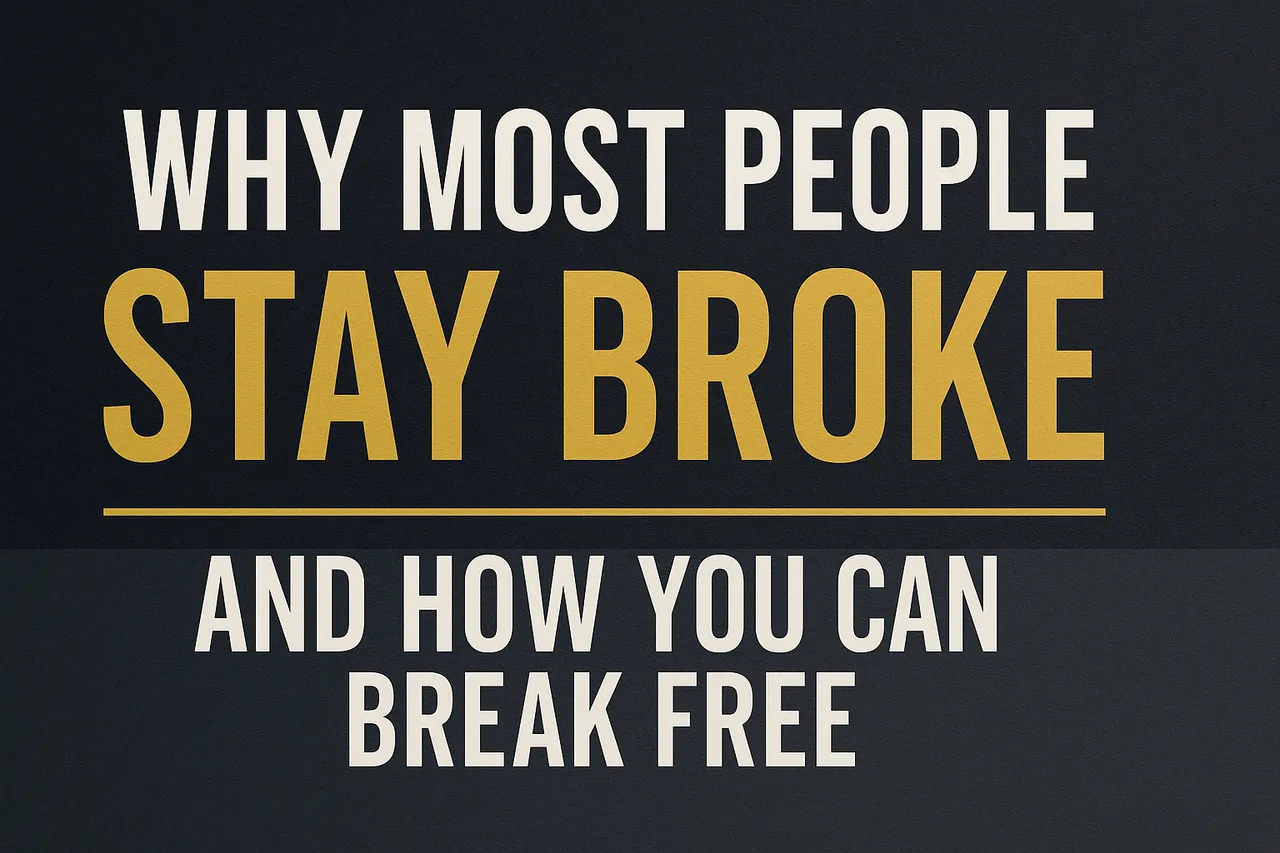
The Hard Truth of How Wealth Is Distributed
Ever pondered why others appear to be destined to remain broke, despite working their socks off? Spoiler alert: it has nothing to do with where you grew up, what your parents do, your sex, or what color you are. It's much, much deeper than that — and today, we're going to lift the veil. Think about it: 100 small dots arrayed in front of you — each dot being an individual living their life somewhere on this planet. Now, if we divide them according to living standards, here's what you get to see: The top 20 dots? That's the "rich" segment. The bottom 20? That's the "poor." All the rest? Stuck somewhere in between — the "middle class." Here's the harsh reality: To be "rich," you need to be doing better than 80% of the people around you. That's mathematics. If all people became "rich," then the term would shift, and it would no longer be "rich."
Why You Might Be Richer Than You Think
But don't lose heart just yet. Because here's something that may literally blow your mind: Even the lowest among us today live more comfortably than kings and queens centuries ago. If you were royalty during the 1600s and fell ill, guess what? Your best hope was witchcraft and some shady "cures." No antibiotics. No indoor plumbing. No electricity. Not even simple hygiene. Now you carry a supercomputer in your pocket, clean water at your fingertips, the world at your doorstep, and medical treatment that can save your life. So why don't we feel rich? Because it's relative. We compare ourselves to the folks around us — not the folks of yesteryear.
Two Brutal Truths You Need to Accept
You asked, and the answer boils down to two simple but painful truths. First, sometimes, your starting point sucks. If you’re born in a country with corrupt leadership, no real infrastructure, and limited access to education or opportunity, yes, your odds are harder. Someone growing up in Switzerland naturally has a higher chance of financial success than someone in South Sudan. It’s a harsh reality, but it’s true. But here's where everyone else quits — they blame the system and quit. The intelligent ones? They keep listening.
Second, most folks just aren't willing to pay the cost of success. It's not the government or the economy. It's you. It's about the sacrifices you're willing — or not willing — to make. Because success requires things that most people are too afraid to offer: decades of work without promised outcome, taking on enormous risk, abandoning comfort, family, and familiarity, being open to learning, failing, standing up, and repeating the process over and over. If you want to transform your life, you might need to abandon your hometown, your friends, even the very culture you were raised in. Most people won't do it. More than 80% of individuals live, work, and die within one hour of their birthplace. Statistically speaking, the life you lead today is the life you will maintain unless you disrupt the cycle — and that is a terrifying thought, is it not?
The Power of Delayed Gratification
Let's get real. Success is something that most people desire. But few people are willing to forgo instant gratification — to study rather than party, to invest rather than spend, to hustle rather than sleep in. The game is easy enough but ruthless: You either save now and reap later, or you indulge now and pay eventually. There's no bypass, no cheat code. It's a long, agonizing ascension — and quitting halfway wins you nothing. Wealth is for those who hold out to the end.
The Opportunities of Our Time
Consider this. You're alive. You've got internet. You've got more opportunities at your fingertips than any generation ever. You've already won half the battle. Now it's about making the right moves — about acquiring skills that are relevant, learning the technologies of today like AI and digital technology, and identifying where the next wave of opportunity will strike. Not newspapers. Not cable TV. We're talking about emerging industries — the ones where the money will be made. The elevator you step into today dictates how high you'll go tomorrow.
Mastering the Rules of Wealth
Once you have a grasp on concepts such as asymmetric risk and marginal utility, you'll be able to comprehend why certain folks appear to ride wave after wave of success, while others remain mired in mediocrity. You'll know that riches aren't coincidental. That success isn't about entitlement. It's about action. It's about being willing to be uncomfortable, to learn, to create a life that has little resemblance to the one you've been given.
Your Biggest Rival is Yourself
Here's the reality we kept for last: You're not competing with anyone else. You're competing with your own excuses, your own bad habits, your own fears. Your future — your future where you get to live life on your own terms — begins with the decisions you make today. Each morning you wake up, you have another chance at creating the life you've always imagined. So here's the last question: Are you going to live a predetermined life? Or are you going to fight for the life you really want? The choice is yours.
Note: The image used in the blog is AI generated.
This blog is based on my knowledge from various books and videos I have watched in sector of finance. And its my personal view.